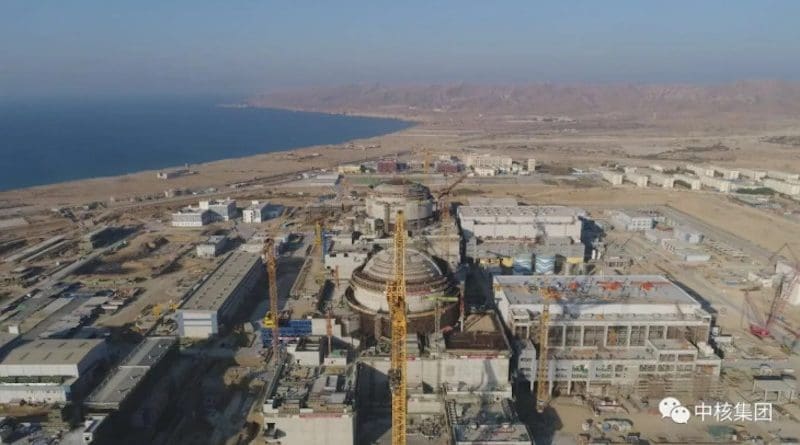Nuclear Technology: Balancing Threats And Promises For A Secure Future – OpEd
By Shah Khalid
Nuclear technology stands as a remarkable testament to human ingenuity, with the power to both endanger and uplift our existence. In the intricate interplay between the potential for destruction and the promise of progress, it is imperative that international cooperation facilitates the peaceful utilization of nuclear technology. This article delves into the dual nature of nuclear technology, its global implications, and how certain nations, like Pakistan, are navigating this complex terrain.
Nuclear technology’s duality is evident in its capacity to serve as both a bane and a boon. Its potential for catastrophic destruction has cast a shadow over its remarkable contributions to humanity. Yet, these same innovations hold the key to addressing critical challenges such as food security, health, environmental protection, climate change, and sustainable energy sources. With such high stakes, international bodies like the International Atomic Energy Agency (IAEA) were established to ensure the responsible use of nuclear technology and its benefits.
The IAEA, as a custodian of nuclear non-proliferation, not only promotes the peaceful use of nuclear technology but also enforces stringent verification processes to safeguard against its misuse. These measures bolster international confidence in the peaceful intentions of states utilizing nuclear technology, helping to dispel concerns of its diversion for military purposes.
Pakistan’s trajectory in harnessing nuclear technology exemplifies the multifaceted nature of its application. The country embarked on its nuclear journey with a focus on peaceful purposes, establishing the Pakistan Atomic Energy Commission (PAEC) in 1952. With a history of energy scarcity, Pakistan’s quest for sustainable energy solutions led it to embrace nuclear energy, a move toward self-reliance that became increasingly important due to geopolitical factors.
In the face of security threats and conflicts, Pakistan felt compelled to develop nuclear weapons to ensure its national security—a decision that reverberated globally. However, Pakistan’s commitment to utilizing nuclear technology for peaceful objectives remained steadfast. Despite the emphasis often placed on its military program, Pakistan actively expanded its civilian nuclear program, prioritizing safety and security while making notable strides in areas such as bioscience, disease control, medicine, and energy.
Pakistan’s reliance on non-renewable sources of energy had plunged the nation into an energy crisis. However, its determined shift towards sustainable energy production has changed the landscape. Nuclear energy, a clean and reliable source, now contributes 6% to Pakistan’s energy mix, with plans to elevate this share to 12% following the operationalization of the K-3 Nuclear Power Plant. With a comprehensive 20-year energy plan in place, Pakistan aims to reach an impressive capacity of 40,000 MWe by 2040, contributing significantly to both energy security and environmental preservation.
Beyond energy, Pakistan has harnessed nuclear technology for enhancing food security and public health. Employing irradiation techniques, the country extends the shelf life and quality of food products, a crucial step in achieving UN Sustainable Development Goals (SDGs) related to hunger and malnutrition. Additionally, efforts in food fortification demonstrate Pakistan’s dedication to maintaining nutritional value in its food supply, ultimately improving public health outcomes.
In the medical realm, nuclear technology has been a game-changer. With 19 specialized hospitals dedicated to cancer treatment and diagnosis, Pakistan showcases its commitment to leveraging nuclear innovations for the betterment of healthcare services. Collaborating with the IAEA, the country actively adopts best practices to ensure the safe and secure use of nuclear technology in various domains.
Pakistan’s journey underscores its dedication to nuclear non-proliferation. While maintaining a military program, the nation’s track record remains unblemished by incidents of nuclear theft or sabotage. Robust national frameworks, including the Pakistan Nuclear Regulatory Authority (PNRA) established in 2001, underscore Pakistan’s commitment to the responsible and secure management of nuclear materials and facilities. By adhering to international conventions, guidelines, and resolutions, Pakistan strengthens its peaceful and military nuclear programs alike. Pakistan’s election as a member of the IAEA Board of Governors multiple times underscores its global standing as a responsible nuclear player. The country’s strides toward sustainable development, safety, and international cooperation paint a holistic picture of its nuclear aspirations.
Nuclear technology’s enigmatic nature, capable of destruction and creation in equal measure, demands responsible stewardship on a global scale. The delicate balance between leveraging nuclear advancements for human progress while averting the shadows of nuclear proliferation necessitates international cooperation and mechanisms like the IAEA. Pakistan’s journey reflects the potential of nuclear technology to address multifaceted challenges, demonstrating that, with unwavering commitment and responsible policies, the promise of nuclear technology can indeed shine brighter than its potential threats.

